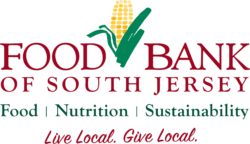Feeling Good – and Improving Health – Through Food
Every day, we see all kinds of messages around food. What to eat, what not to eat. And so much of it reinforces the correlation to how food impacts our health and wellness.
We also often hear the expression food is medicine, which can mean many different things. For the more than 117,000 people in South Jersey that are dealing with food insecurity, there is a clear connection between health and not having daily access to nutritious food.
“Food insecurity is a big determinant affecting people’s health,” said Truong Nguyen, a registered dietician at Inspira Health’s Food Farmacy+. “Over time, if they’re not eating the right amounts of nutritious food, they are going to run into vitamin and mineral deficiencies, which can cause chronic disease states.”
Rose Gaano, a member of the Food Bank of South Jersey’s Health & Wellness team who serves as the Food Equity Senior Manager, reinforced that it goes beyond food insecurity. “It’s not just food security but it’s also nutrition security. Yes, you might have access to food but is it nutritious for you?”

Since 2019, Inspira Health has screened patients for food insecurity and connects them with one of their Food Farmacies in Bridgeton or Woodbury. These patients can meet with Nguyen, who assesses their nutritional needs and can “prescribe” foods that can best help them with any related medical condition.
The Food Farmacy+ is seeing more than 170 neighbors each month. The Food Bank of South Jersey partners with the Food Farmacy+ so that it can provide shelf-stable food to the patients who schedule appointments with Nguyen.
Nguyen, in turn, encourages them in any way he can to improve their health. “The biggest changes happen with the smallest habits.”
And he has seen the positive outcomes of patients making lifestyle changes that have helped them improve their own health before a medical procedure.

Gaano sees an added benefit of the program: “People are so emotional when they receive the produce and are so grateful, so there is that mental aspect too that comes with being food secure.”
